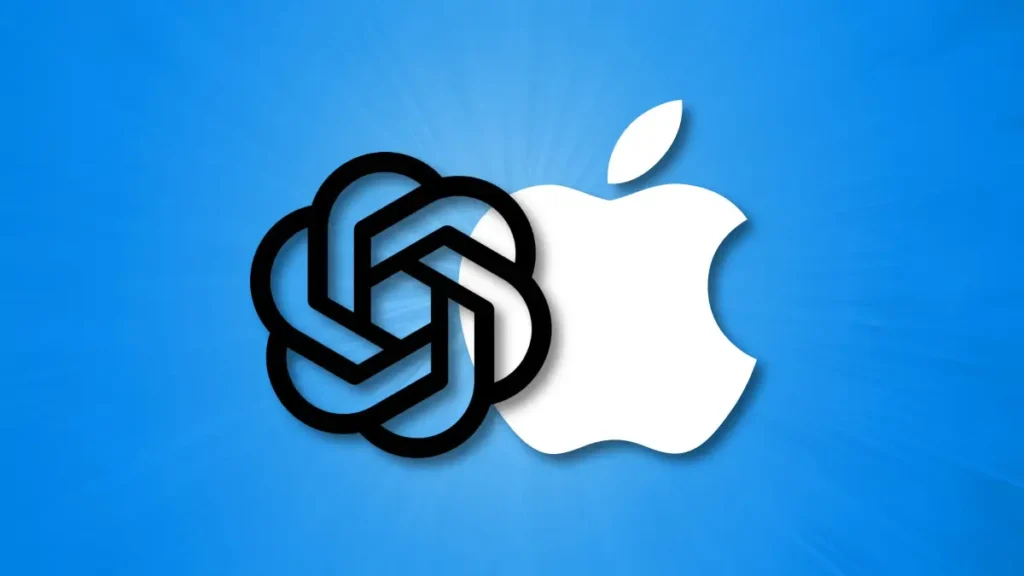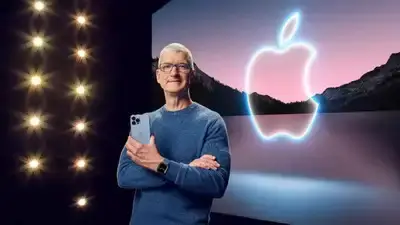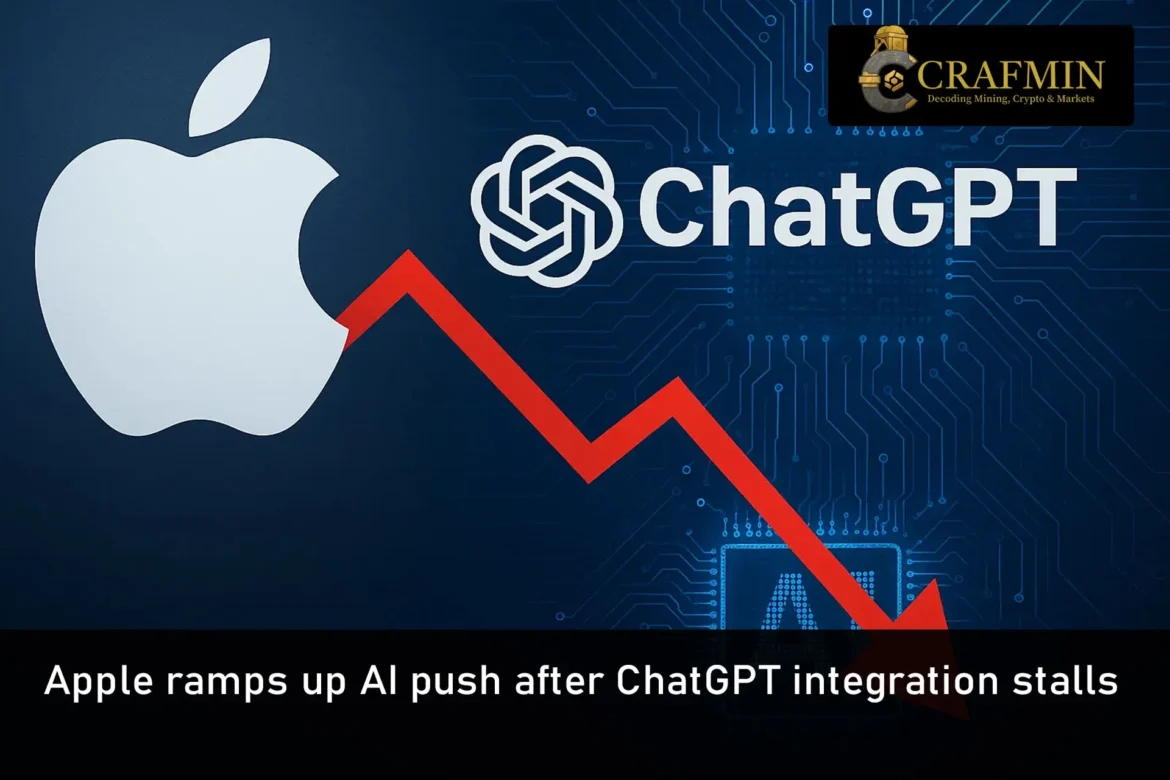Apple has launched another wave of AI projects. With this backdrop, there were delays and criticism regarding the ChatGPT integration and Siri enhancements.
Under this new team structure, the tech giant would like to go about building chatbot tools all by itself. Apple created a division named Answers, Knowledge and Information (AKI).
The team is to build Apple’s large language model and an answer engine. It will be designed to work within the Apple ecosystem, directly aiding Siri, Safari, Spotlight, and Messages.
The team includes some key developers who came across from the Siri team, among them senior director Robby Walker. This is a clear signal that Apple is moving consciously away from reliance on OpenAI ChatGPT.
The project will continue alongside the development of Apple Intelligence. Apple intends to build this AI model deep into iOS and macOS. This is a sign of a move toward AI independence very shortly, rather than conversion into OpenAI partnerships.

Apple launches fresh AI wave amid ChatGPT, Siri delay backlash.
How is Apple distancing itself from ChatGPT?
In 2024, Apple gave first access to ChatGPT for Siri and some writing tools. Users could opt to send queries directly to ChatGPT from Apple devices. However, the users protested against this, and the rollout got delayed.
The internal team wants to focus on less dependence on third-party providers. While integration with ChatGPT remains optional, Apple wants to have a privacy-first alternative. The company is also in talks to collaborate with other providers like Perplexity and Google Gemini.
By building its answer engine, Apple avoids the long-term dangers of an external AI relationship. It can further improve data privacy, which has been an unbending focus of Apple’s.
Apple AI push reflects internal restructuring
The AKI launch signals a broad AI-oriented restructuring for Apple. Several Siri engineers and AI researchers have been shifted over to this new unit.
Executives now put greater importance on search, answer generation, and model development than on assistant features. This internal shift reflects months of employee discontent about the pace of AI.
In early 2025, several key staff reportedly left the Siri team due to development stalling. The AKI team represents Apple’s strategic reset to reclaim AI momentum. Apple’s AI chip team is also working on new server-side infrastructure.
This will support in-house models and faster AI computation.
Why did Siri’s delay trigger criticism?
The major WWDC 2025 event announced a completely refreshed Siri with AI capabilities. All in all, the big AI overhaul on Siri was never there: it caused huge doom and gloom. An updated Siri, now referred to as “Siri 2.0,” was pushed back to 2026.
Some industry observers have found Apple’s AI announcements vague or underdelivering. A recent lawsuit suggested that Apple misled in advertising regarding Siri’s capabilities. Other users complained about functionality issues and inconsistent beta features.
The auto-summary tools offered by Apple Intelligence were deemed faulty by some developers. Media entities like the BBC have raised those issues, citing factual inaccuracies in the summarised content. As a consequence, Apple had to switch off some features amid the beta.
The __delay__ dented Apple’s reputation in the AI race. Anyhow, they say they prefer a slow-and-steady, privacy-first rollout rather than aggressive public releases.
Tim Cook reaffirms Apple’s AI priorities
Despite criticisms, Apple leadership has gone full speed ahead with AI investment. CEO Tim Cook paid up for AI to be “as important as the Internet itself.” He further assured shareholders that the company remains committed to AI development on a long-term basis.
Cook tempestuously revealed that in 2025 alone, the company had acquired seven AI startups, including teams working on search, chat, and multimodal AI training. Cook also mentioned there are ongoing discussions about further acquisitions, which would be made if the alignment is strategic.
In their quarterly reports, Apple states that more than 40% of new hires are working on AI; the company is also setting up server farms in the U.S. There is also talk about a chip called “Baltra” being developed to assist with inference for a model.

Tim Cook calls AI “as important as the Internet,” vows long-term commitment.
Apple Intelligence rollout is still underway
Apple Aleph was officially launched in late 2024. A beta was made available to developers in July 2024. The public release followed suit on 28 October 2024 with iOS 18, iPadOS 18, and macOS Sequoia.
By 31 March 2025, Apple had increased the support for languages and extended the availability at the user’s end. Features like writing assistance, notification summaries, and image generation made their, shall we say, spectacular entrance onto Apple Intelligence.
The big ones, though-Siri core features, were missing in action from the initial rollout. Apple promises improvements to Siri in phases now. They keep refining voice commands, real-time translation, and context-aware responses.
Integration of Siri with Apple Intelligence is, therefore, now expected by the middle of 2026. Developers continue to be hopeful but wary of AI updates in the future. Apple’s slower rollouts are in contrast to the fast track adopted by more aggressive AI firms like OpenAI and Google. Yet it does go in step with Apple’s core values of user privacy and ecosystem control.
Also Read: Zuckerberg’s $250M Offer Wins Over AI Prodigy Matt Deitke
Final thoughts
The AI hype in Apple has now been brought to a halt because it was riddled with rollout issues and because it depended on ChatGPT. With the launch of the Answers team, Apple is taking back control of its AI future.
Though Siri’s upgrade may be late, bigger AI plans truly remain intact. Tim Cook has publicly reassured, made position hires, and made acquisitions to confirm this as a long-term goal.
All eyes will be on the performance of the in-house model as Apple Intelligence grows more and more. The moment that will define Apple’s AI studies would be whether it will compete with or replace ChatGPT.

